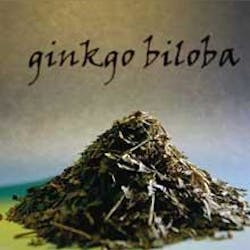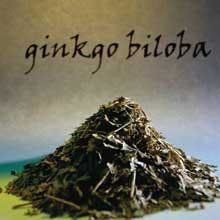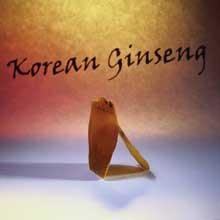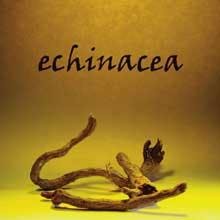Herbs: Efficacy, adverse reactions, and drug interactions
by Cynthia R. Biron, RDH, EMT, MA
Dietary supplements have become a $10 billion a year industry. With so many patients taking herbs and dietary supplements, we are in search of information on their effectiveness, contraindications to dental treatments, and interactions with the drugs used in dentistry and/or other drugs patients may be taking.
The top selling herbs are: ginkgo biloba, St. John's wort, echinacea, ginseng, saw palmetto, and kava. The uses for herbs are often for conditions common to the cardiovascular system, central nervous system, and the immune system. An overview of each of the six top selling herbs is presented here.
Ginkgo biloba
Most commonly known for its effects in improving cognitive function, ginkgo was one of the most commonly purchased herbs in the United States in 2002. The mechanism of action of ginkgo is thought to be that of antihypoxic and antiplatelet effects on the cardiovascular system by preventing ischemia. It also has antioxidant properties that protect tissues from free radicals. The therapeutic dose ranges from 120 to 320 mg per day.
Of the 40 controlled studies evaluating ginkgo's effectiveness on memory improvement, only eight of the studies conducted were of good methodological quality. Seven out of eight of these studies demonstrated that ginkgo might improve cognitive function. However, evidence to support this theory is not completely convincing, as conflicting studies are included in many research journals.
Ginkgo has been shown to be effective in preventing or delaying deterioration of cognitive function in dementia. The herb is used in the treatment of Alzheimer's disease, and with further research, it may be found to be effective for preventing or delaying manifestations of Alzheimer's disease.
Other uses for ginkgo include treatment of tinnitus, as five separate trials including 621 patients demonstrated that ginkgo provided a substantial improvement in the condition. Ginkgo is effective in relieving effects of intermittent claudication, as evidenced by patients' improvement in walking greater distances without pain. In fact, in Europe, ginkgo has been determined to be as effective as the prescription drug, pentoxifylline, for patients with intermittent claudication.
More recently, studies on ginkgo have included its effects as an antioxidant, a substitute for hormone replacement therapy (ginkgo contains 24 percent phytoestrogens), and a sexual enhancer due to its improvement in blood flow.
Adverse effects associated with ginkgo include headache, nausea and vomiting, other gastrointestinal disturbances, and increased bleeding time. Gingival bleeding can occur from the use of ginkgo.
Because of ginkgo's antiplatelet actions, it can potentiate the effects of antiplatelet agents: aspirin, ticlopidine (Ticlid), clopidogrel (Plavix), Dipyridamole (Persantine),and the anticoagulant warfarin (Coumadin). It may increase blood levels of antidepressants, and if used concomitantly with antipsychotic drugs, may cause seizures. Some studies have shown that ginkgo affects insulin levels.
St. John's Wort
The main active ingredients in St. John's wort are hypericin and hyperforin. Although St. John's wort has had numerous uses, it is most often used for its antidepressant effects, which are thought to be a result of its selective inhibition of serotonin, dopamine and norepinephrine reuptake. The therapeutic dose is 900 mg of standardized extract, which is 0.3 percent hypericin. Effects take two to three weeks.
Numerous studies have been conducted on the efficacy of St. John's wort as an antidepressant, but 14 randomized clinical trials have proven to provide the most critical meta-analysis. In a recent three-armed, randomized clinical trial, 263 patients received 1,050 mg per day of St. John's wort, or 100 mg per day of imipramine or placebo. The findings of these clinical trials demonstrated that St. John's wort is as effective as tricyclic antidepressants in the treatment of depression.
If St. John's wort is the only drug a patient is taking, it is extremely safe. It is when St. John's wort is taken with other drugs that patient safety may be compromised. Because St. John's wort induces hepatic enzymes that increase the breakdown and bodily elimination of other drugs, it decreases the effectiveness of other drugs. St. John's wort interactions include: decrease in efficacy of oral contraceptives, HIV protease inhibitors, HIV non-nucleoside reverse transcriptase inhibitors, Digoxin (Lanoxin), antiplatelet agents, anticoagulants, and other cardiac drugs: nifedipine (Procardia), and dilitazem (Cardizem). St. John's wort interactions can also occur with theophylline (Elixophyllin), cyclosporin (Sandimmune), antineoplastics, and antidepressants. Especially of concern is its interaction with selective serotonin reuptake inhibitors (SSRIs), as the combination of SSRIs and St. John's wort can lead to serotonin sickness. As with other antidepressant drugs, St. John's wort causes xerostomia.
Ginseng (Panax Ginseng)
Ginseng is popular for its reputation in providing an increase in energy, stamina, sexual performance, well-being and a host of health effects. Unfortunately, there is no compelling evidence to demonstrate that ginseng consistently produces such effects.
There are small individual studies that demonstrate ginseng's effectiveness in the aforementioned categories, but there are many studies with evidence to the contrary. Of the recent studies of average methodological quality, an epidemiological study demonstrated that Korean ginseng might be effective in reducing the risk ratio of cancer. Another recent study indicated that American ginseng has hypoglycemic effects on non-diabetic individuals and those with Type 2 non-insulin dependent diabetes. Further studies are being conducted to supplement these last two promising studies. Those who take oral antidiabetic agents or are insulin dependent should be advised that ginseng products could increase the chance of insulin reaction (hypoglycemia).
There have been a low number of serious adverse reactions to ginseng or to other products or contaminants in the packaged capsules. Drug interactions include warfarin (Coumadin), phenelzine (Nardil), digoxin (Lanoxin), and insulin and oral antidiabetic medications.
Echinacea (Echinacea species)
The pharmacological properties of echinacea are thought to be an increase in macrophage production of tumor necrosis factor and interleukins. Echinacea is most effective in upper respiratory infections. Sixteen randomized clinical trials were conducted to evaluate the efficacy of echinacea in upper respiratory infections. Out of eight trials that were placebo controlled, only two showed no beneficial effects of echinacea in upper respiratory infections. The recommended dose is 900-1,000 mg, three times a day.
Adverse reactions are rare, but usually involve severe allergic reaction. Patients with asthma should be advised of the chances of allergic reaction to echinacea. An oral manifestation that may occur with echinacea use is tongue numbness. Drug interactions include: anabolic steroids, amiodarone (Cordarone, Pacerone), methotrexate (Rheumatrex), ketoconazole (Nizoral), cyclosporine (Sandimmune), HIV preotease inhibitors, benzodiazepines, and calcium channel blockers.
Saw Palmetto (Serenoa Repens)
Saw palmetto has been used for genitourinary problems and now is primarily used for treating benign prostatic hyperplasia (BPH). The pharmacological mechanisms are not clearly understood, but thought to be related to inhibition of enzyme 5-a-reductase and its ability to convert testosterone to dihydrotestosterone, as well as inhibition of prostate estrogen receptors. The recommended dosage is 320 mg per day.
The use of saw palmetto has not provided consistent clinical evidence of reduction in the size of the prostate gland. There were 16 randomized, double-blind clinical studies of 2,939 patients with BPH, 10 of which included control groups in combinations of three types of saw palmetto and other types of herbs versus a placebo group; and two of the groups compared saw palmetto with finasteride, the leading treatment for BPH. The symptoms of BPH were relieved with saw palmetto over placebo (p >0.01). Saw palmetto was as effective as finasteride with regard to nocturia and peak urinary flow.
In all clinical trials in the meta-analysis, withdrawal from the study due to adverse effects occurred as follows: saw palmetto 9.1 percent, the placebo group 7.0 percent, but the finasteride group was the highest at 11.2 percent. The cost of finasteride compared to saw palmetto, coupled with fewer side effects, makes saw palmetto the most common treatment for BHP today. Long-term use (over six months) of saw palmetto has not been studied.
Kava (Piper Methsticum)
Kava's active ingredients, the four pyrones (kavapyrones), have been used to treat anxiety, insomnia, and stress-related muscle tension and pain. The kavapyrones act as muscle relaxants and anticonvulsants, and have the capability of reducing limbic system excitability. The exact mechanism of action of the kavapyrones is not known, but thought to be related to their ability to block norepinephrine uptake and suppress the release of glutamate. Kava has been compared to the benzodiazepines in effectiveness, but without the addictive and other adverse effects of fatigue, depression, or loss of mental acuity. Kava may also be a platelet inhibitor. The dosage is 100-210 mg per day.
Seven randomized trials with a total of 377 people demonstrated that kava is effective for the treatment of anxiety as compared to placebo (95% confidence). In the trials, adverse reactions were similar to those experienced by the placebo group. However, there have been a series of adverse reactions reported since the studies. On March 25, 2002, in the FDA Consumer Advisory, the FDA advised consumers of the potential risk of liver injury as a result of kava-containing dietary supplements. The adverse events included hepatitis, cirrhosis, and liver failure in more than 25 countries outside of the U.S. Four of the patients had liver transplants. In the U.S., there have been several reports to the FDA regarding liver problems associated with the use of kava. The FDA is urging health care professionals to report kava-related liver injuries to FDA's MedWatch program by calling (1-800-332-1088) or emailing www.fda.gov/medwatch.
Kava can cause allergic reactions, and long-term use has been associated with a condition known as kava dermopathy or kavaism that presents as flaky, dry, yellowish skin. Additional signs and symptoms of excess kava use include hair loss and loss of weight, appetite, and hearing. The manifestations disappear when kava is discontinued. Oral manifestations that occur from long-term use of kava include oral and lingual dyskinesia.
Kava drug interactions include all CNS depressant drugs, including alcohol, antiplatelet agents, psychotherapeutic drugs, antidepressants, and analgesics such as acetaminophen (Tylenol), which, when combined with kava, increase the chances of liver injury.
In 2000-2002, a survey of 61,587 participants indicated that those most likely to take dietary supplements had specific lifestyle characteristics and medical histories. Herbs and dietary supplements were taken most often by women who were older, educated, of average weight, nonsmokers, well exercised and likely to eat a low-fat diet that was high in fruits and vegetables (P<.001). Individuals with some medical conditions took dietary supplements that could prevent or alleviate their symptoms. The most common conditions being self-treated included bladder problems, BHP, and arthritis.
The patients that may seem to be perfectly healthy may be the ones who could have a postoperative complication or an interaction to a drug used in dentistry due to the use of dietary supplements. Although patients may not be forthcoming with information about dietary supplements, it is important to further question them if they are scheduled for dental procedures. Dietary supplement complications to dental procedures could include problems with bleeding, immune suppression, and wound healing.
Drugs used in dentistry could cause interactions with dietary supplements the patient may be taking. Even over-the-counter analgesics such as proprionic acid derivatives (Ibuprofen, Advil, Aleve, and Motrin, etc.), acetaminophen (Tylenol) or acetylsalicylic acid (aspirin) could present bleeding problems if the patient already has blood levels of herbs such as ginkgo, ginseng, St. John's wort or kava. CNS depressants such as nitrous oxide, benzodiazepines, and other sedative hypnotics can be potentiated by kava. Careful assessment of the patient's medical history through questioning can prevent treatment complications from dietary supplements or other findings the patient presents.
Cynthia Biron, RDH, EMT, MA, is the director of the dental programs at Tallahassee Community College. She is a consultant for DH Meth-Ed, teaching methodology consultants. She can be contacted at [email protected].
Hobbs C. The chemistry and pharmacology of Echinacea species. HerbalGram. 1994;30:1-7.Linde K, Mulrow CD. St John's wort for depression. Cochrane Database Syst Rev. 2000;CD000448.
Pittler MH, Ernst E. Ginkgo biloba extract for the treatment of intermittent claudication: a meta-analysis of randomized trials. [PMID: 11014719] Am J Med. 2000;108:276-81.
Pittler MH, Ernst E. Efficacy of kava extract for treating anxiety: systematic review and meta-analysis. [PMID: 10653213] J Clin Psychopharmacol. 2000;20:84-9.
Ernst E. (Edin) Annals of Internal Medicine: The Risk-Benefit Profile of Commonly Used Herbal Therapies: Ginkgo, St. John's Wort, Ginseng, Echinacea, Saw Palmetto, and Kava. 2002, Vol 136 :1, Pages 42-53.
Yue QY, Bergquist C, Gerdén B. Safety of St. John's wort (Hypericum perforatum) [Letter]. [PMID: 10683030] Lancet. 2000;355:576-7.
www.mayoclinic.com.
Vogler BK, Pittler MH, Ernst E. The efficacy of ginseng. A systematic review of randomised clinical trials. [PMID: 10541774] Eur J Clin Pharmacol. 1999;55:567-75.
Williams JW Jr., Mulrow CD, Chiquette E, Noël PH, Aguilar C, Cornell J. A systematic review of newer pharmacotherapies for depression in adults: evidence report summary. [PMID: 10787370] Ann Intern Med. 2000;132:743-56.
www.PubMed.com
www.fda.gov/medwatch




